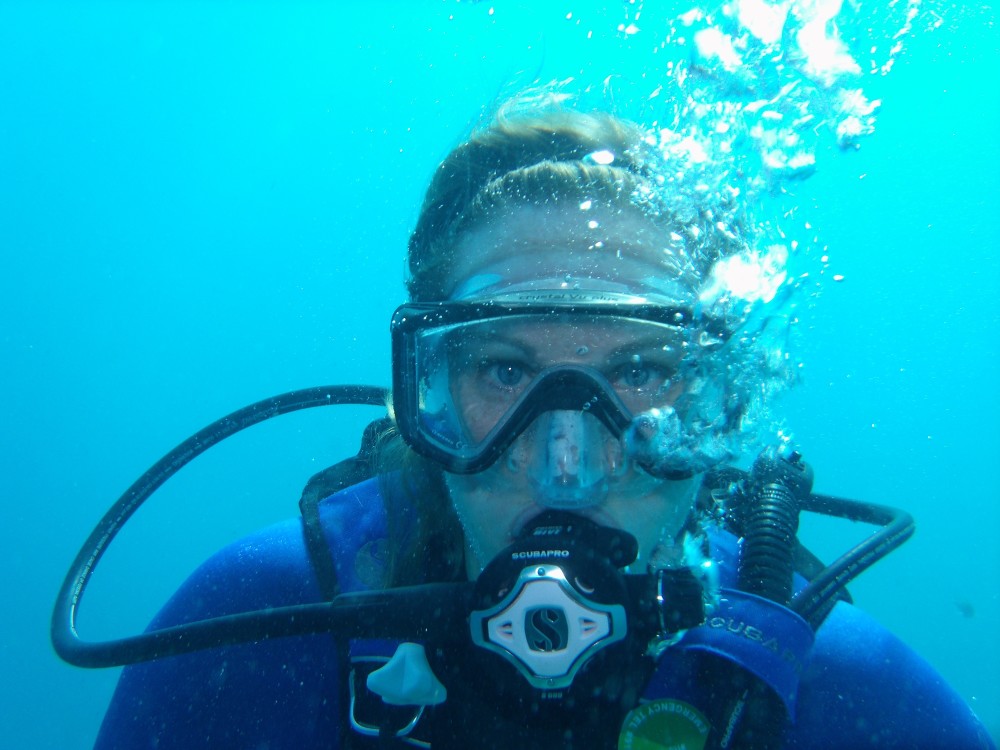During her seven years as a retail pharmacist, Monica Mion Cook heard many clients say they dumped their medication down the drain because they didn’t need it anymore. Then she started hearing stories about how animals and the environment were harmed by this practice.
After reading a 2007 Pharmacy Times article describing hormones in the water, Cook applied for graduate school. She enrolled as a Ph.D. candidate at the USF College of Marine Science with a focus in chemical oceanography, hoping to become a water quality researcher.
“Water is one of the most precious things on earth,” Cook said in an interview with the Crow’s Nest. “Water is our livelihood.”
In spring 2013, Professor Leon Hardy’s computational biology class used virtual technology, databanks and models to explore protein structures or solve problems. As a part of her Ph.D. dissertation, Cook explored endocrine disrupting compounds, known as EDC, and solutions to water pollution. Hardy’s class presented at the Nov. 20 research colloquium in the Nelson Poynter Memorial Library.

The endocrine system, Cook explained, is found in all humans and animals. This system communicates through hormones. EDCs are chemicals that interfere with hormones and disturb the endocrine system. The fragrance in personal care products and ingredients in pesticides and medicines are EDC.
Cook recounted the 1980 pesticide spill in Lake Apopka, when alligators in the lake were nearly killed to extinction. Juvenile alligators were most affected, so the alligator population in the lake is still recovering.
Everything flushed down a drain is sent to a waste water treatment plant and filtered. The problem is EDCs, such as pharmaceuticals, are not filtered out because of their small size.
Looking for a solution to this problem, Cook experimented with electrocoagulation, or EC, technology. Using electricity and nine metal blades in a tray, the technology pulls water through the tray. In July, Cook ran experiments with it, and so far she believes it to be successful at removing contaminants from the water.
Cook’s passion for the water and the environment flows into her life outside of her studies. She and her husband love to travel and explore the outdoors. They are also fond of scuba diving.
Ten years ago, Cook joined a meteorologist friend and chased tornadoes in Texas, Nebraska and Kansas. She said they saw “awesome hail balls” and “cloud to cloud lightning.”
Cook hopes to be working with a company involved in water quality research ten years from now. She also hopes to be involved in legislation of pharmaceuticals in the water quality industry. Currently, pharmaceuticals are not regulated, but Cook believes they will be soon.
For now, Cook encourages people not to flush their expired, unused or unwanted medicine down the drain.
“Do not rush to flush,” she said. Just use the trash can.
For more information: If you want to learn more about what to do with pharmaceuticals, visit dontflushyourmeds.com, disposemymeds.org, whitehouse.gov or fda.gov.
news@crowneststpete.com



